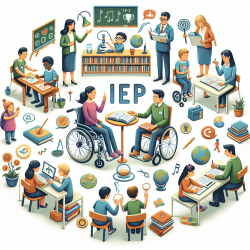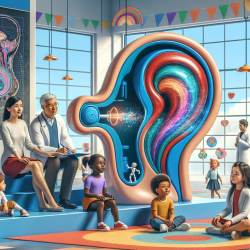The COVID-19 pandemic has significantly altered how we communicate, especially for vulnerable populations like older adults and individuals with dementia (IWD). The recent study "Video Call Usage in Older Adults With or Without Dementia Impacted by the COVID-19 Pandemic" provides valuable insights that practitioners can use to enhance their services. This blog will discuss key findings and practical applications for speech-language pathologists (SLPs) working with these populations.
Key Findings from the Research
The study highlights several important outcomes:
- Both older adults (OA) and IWD increased their use of video calls during the pandemic.
- The severity of dementia was not correlated with video call usage among IWD after the pandemic began.
- Both groups perceived significant benefits from using video calls, although IWD faced more barriers.
Practical Applications for Practitioners
SLPs and other healthcare professionals can leverage these findings to improve outcomes for their clients:
1. Promote Video Call Usage
Given the increased use and perceived benefits of video calls, practitioners should encourage their clients to adopt this technology. This is particularly important for IWD, as social interaction can slow cognitive decline.
2. Provide Training and Support
The study found that IWD often require assistance and training to use video calls effectively. Practitioners can offer:
- Step-by-step written instructions
- Demonstrations and verbal cues
- Hands-on assistance with devices and apps
3. Address Barriers
Technical difficulties were a common barrier for both OA and IWD. Practitioners can help by:
- Recommending user-friendly devices and apps
- Offering troubleshooting tips
- Ensuring that clients have reliable internet access
Encouraging Further Research
While this study provides valuable insights, more research is needed to understand the long-term impacts of video call usage on the quality of life for older adults and IWD. Practitioners are encouraged to participate in or initiate studies that explore:
- The effectiveness of different training methods
- The impact of video calls on mental health and social connections
- Barriers specific to various types and stages of dementia
Conclusion
The use of video calls has proven to be a beneficial tool for maintaining social connections during the COVID-19 pandemic. By implementing the findings from this study, practitioners can better support their clients, particularly those with dementia, in navigating the challenges of using this technology.
To read the original research paper, please follow this link: Video Call Usage in Older Adults With or Without Dementia Impacted by the COVID-19 Pandemic.










